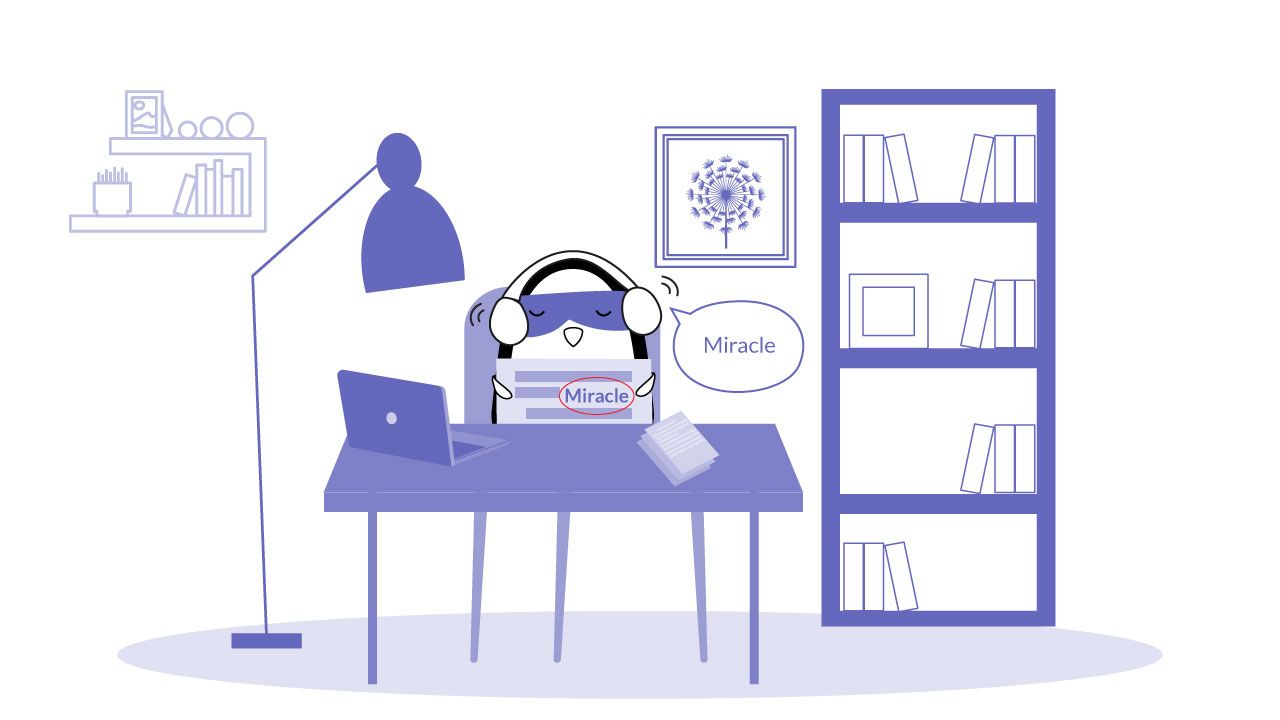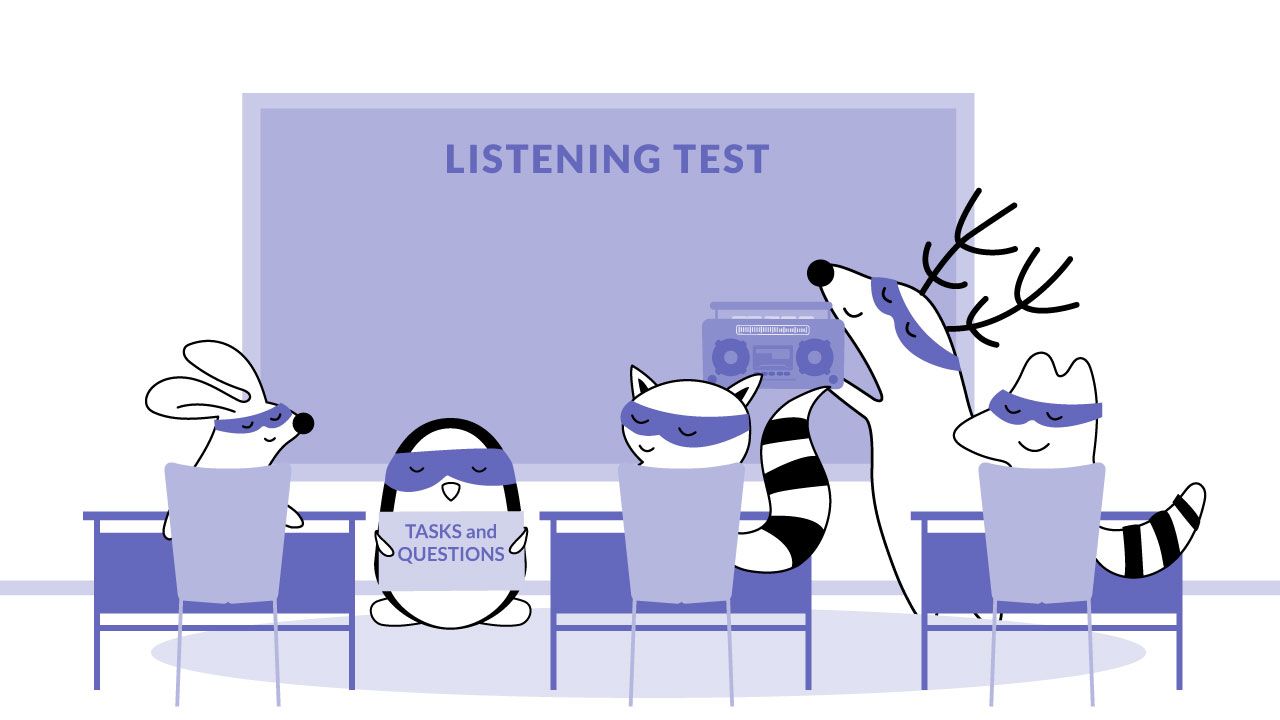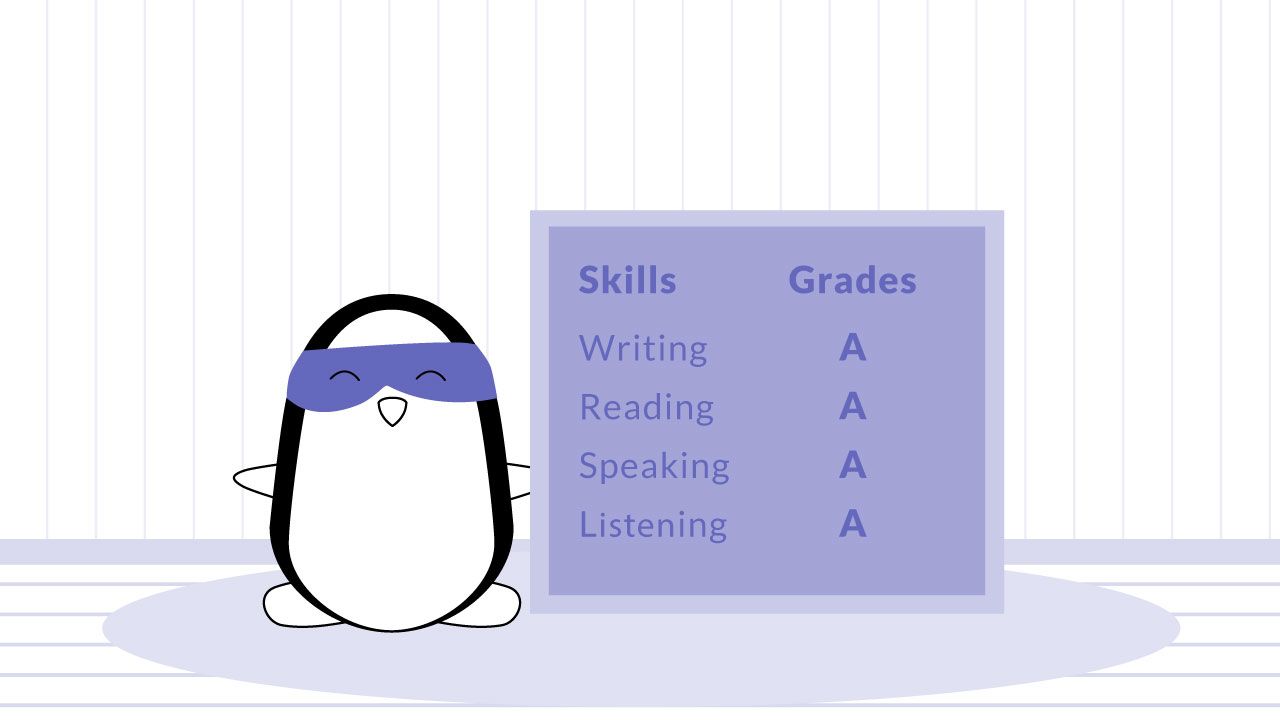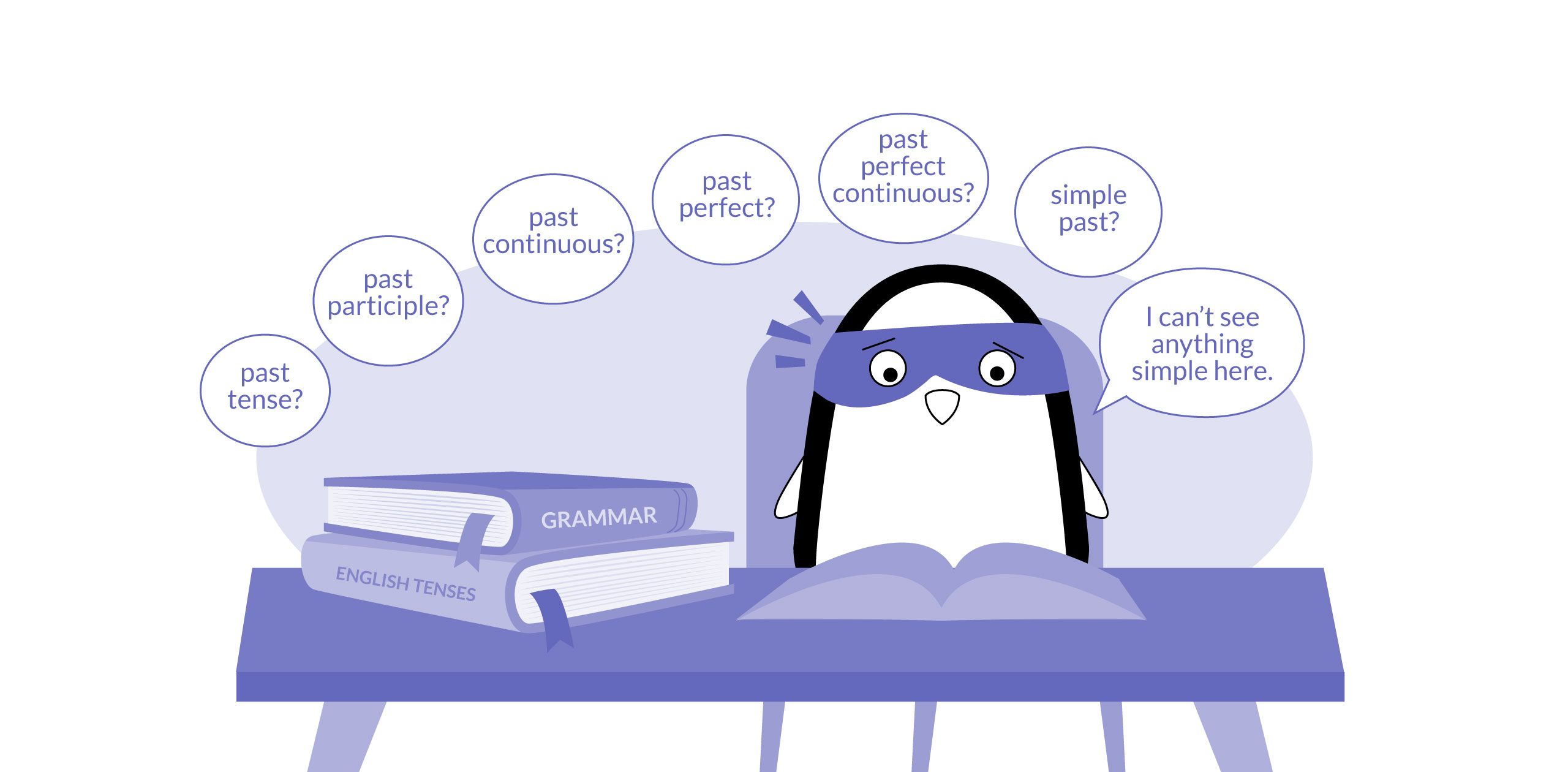
For many English learners, listening comprehension is one of the most challenging parts of the language learning process to overcome, along with the speaking barrier. And while many non-native speakers concentrate more on the speaking barrier, it is important to know that when you improve your listening skills, you also get better at speaking English.
You simply cannot participate in a real-life conversation if you have trouble understanding your conversation partner. Furthermore, listening is one of the essential language skills, so any English test is going to have a listening part.
So, if you're trying to get a certificate to confirm your English level or pass a school exam, it is essential to practice listening regularly. Here's our step-by-step guide on how to improve listening skills in English.
Learn English with Langster
Basic Steps to Practice Active Listening
In order to get prepared for the exam, you need to start practicing active listening on a regular basis. Fortunately, numerous listening activities can help you improve your skills.
For example, you can listen to songs and podcasts in English or watch YouTube videos and popular TV shows with English subtitles. However, these methods are mostly examples of passive listening.
On the other hand, in order to be able to speak English, you need to boost your active listening skills, which implies participating in an English conversation and paying attention while listening to the other person to understand, provide feedback, and answer.
However, speaking with a native speaker isn't always an option. Still, there are plenty of audio materials narrated by native English speakers available online, which you can use to practice listening skills. Here are some basic steps that will help you get through them most effectively:
Listen Carefully Without Reading the Transcript
Most audio materials come in the form of a short audio clip and a transcript attached to it. First, listen to just a few minutes of the audio at normal speed to check how much you understand without peeking into the transcript.
If you can't translate it word for word, don't worry - you don't have to understand every single word to understand the general meaning. It is recommended to repeat this step several times and take notes.
Read the Transcript
Now, read the transcript of the audio clip you've just listened to and highlight all the unfamiliar words and parts of the text you understood only from reading.
This will allow you to visualize how much of the text you actually understood from listening and identify individual words you deem hard to understand to pay careful attention to them during the next listening.
Listen Again and Follow the Text
Next, you will listen to the audio back again and follow the transcript at the same time. First of all, this will allow you to determine the cause why you haven't understood the missed words. The most common reasons are the speed of speech, diverse English accents, connected speech, and unfamiliar vocabulary.
Secondly, looking at the words while listening to them will help you remember how certain words and phrases sound. It is recommended to repeat this step several times and write down all the new words to increase your learning vocabulary, and review it later.

Listen One More Time
Now, you should put aside the text and turn on the audio clip again. You should already get used to the sound of new words and easily distinguish them in speech. The more you practice and listen to audio materials, the easier it will be to understand spoken English.
Remember that it is essential to know the correct pronunciation of English words to understand everyday speech. You can try to repeat sentences after the speaker aloud, to get a feel for their pronunciation and intonation.
You can repeat this step a few times and then move to the other audio clips. However, feel free to revisit it and listen back to the same thing a couple of days later - this way, you will be able to check how well you remember the new vocabulary.
Keep in mind that such exercises are essential to practice active listening skills and that repetition is key, so you should do them at least three times a week. On other days, you can simply listen to music or watch movies in English for your own pleasure.
How to Pass a Listening Test
Now, when it comes to the listening exam itself, it is essential to know what to do and how to approach it. First of all, you should know that the actual listening part of the test is usually short, so it is important to stay focused to get as many points as possible. Here are a few steps that will help you pass a listening test:
- Before the listening part starts, you should read the task carefully and figure out how many times you will listen to the recording. Also, you want to read the questions beforehand, as they may contain some clues about the content, as well as the parts you should pay attention to while listening.
- During the actual listening part, you need to concentrate on the audio only. If you don't understand a particular word that seems important, think about the context - it most likely will help you understand the overall meaning. However, don't focus on one unfamiliar word for too long - continue listening to the rest of the text; otherwise, you might miss important information.
- Now, complete the tasks. The most common tasks in listening exams are multiple-choice questions, open answer questions, true or false, and "fill the gap" type of questions. Although it's a listening test, checking your answers for grammar, spelling, and punctuation mistakes is still crucial before turning in your answer sheet. This can help you earn a few more points.

Tips for Productive English Listening Practice
Now that you know how to practice active listening and what to expect during the listening exam, you might be interested in establishing a consistent language learning routine that will help you achieve better results.
After all, it is easy to lose motivation when you learn English on your own, so it's essential to make your listening practice as enjoyable as possible. Fortunately, we have a few additional pieces of advice on how to improve your English listening skills:
Allocate Enough Time to Practice Regularly
It is always better to study a little bit every day than to try to master everything at once and then give up training for a long time again. Even fifteen minutes a day of listening to English will help you improve your listening skills and expand your vocabulary.
If you have a too-busy schedule to allocate time for listening exercises every day, consider combining English listening with other activities. For example, you can listen to a podcast or an audiobook while walking your dog or tidying up the house.
Choose Audio Materials According to Your English Level
Before you start practicing with any audio materials in English, you need to determine your language level and choose audio at the right level. At the very beginning, you may prefer listening to short dialogues with clear pronunciation.
Don’t start from a higher level, even if it seems to be more productive. Instead, choose audio materials that advance gradually.
Dialogues on everyday topics, short cartoons, or slow songs are the most suitable options for beginning English learners. For intermediate learners, it is recommended to start with sitcoms - these are excellent for getting familiar with various English accents, common contractions, and slang expressions.
Listen to the Topics You Are Interested in
You cannot deny that interesting information is easier to remember. For this reason, make sure you choose listening activities that best suit your interests.
You can rewatch movies of your favorite genre, listen to podcasts related to your profession, and subscribe to videos of English-speaking vloggers on YouTube.
In short, imagine that English is your native language, and there is no language barrier for you, so you can watch what you are interested in and have fun.
The main charm of learning a new language through movies and TV shows is that it becomes much easier to catch the difference in intonations, connected speech, and understand which situations you can use particular phrases in.
Prepare the Materials in Advance
Once you identify the topics you are interested in, don't stop there. Make yourself a list of materials connected to them. The most convenient way is to use your smartphone and create a watchlist with movie titles and links to streaming services attached, so you won't waste your time deciding what to watch next time.
Similarly, you can add a few podcasts to your daily playlist or download a couple of audiobooks, so they are always at your fingertips - which will come in handy next time you have a few spare minutes to devote to learning English.

Expand Your Vocabulary
The more words you know, the easier it will be for you to understand the English language when listening to it. Moreover, you will not be able to practice speaking until you have a decent vocabulary at hand. You need to pay close attention to colloquial speech, abbreviations, and even interjections.
However, do not forget to learn idioms and slang expressions, as they are often used in spoken English, but may sound like nonsense for those learning it as their second language. Watching trending movies and TV series, as well as listening to popular music, will be helpful.
Repeat Aloud
When learning new vocabulary, don't just memorize phrases and words - repeat them aloud. First of all, this will help you pick up the proper phrasing and practice various intonations and pronunciation. Pronunciation is important because incorrect pronunciation can lead to misunderstandings or make you sound unprofessional.
If you take an English course with a tutor, try to repeat after them when possible and adjust if they make any corrections to your pronunciation.
If you are learning English on your own, make sure to check new words with online dictionaries. Most of them enable listening to the proper pronunciation of a particular word, sometimes both in the American and British English versions.
Communicate with Real People
Nothing helps in learning a language better than live practice. One of the most effective ways to improve your listening skills is, of course, communication with native speakers. When traveling, do not hesitate to make small talk with a foreigner or ask a passerby if you need help with something.
If there is no such opportunity, you can consider joining local speaking clubs or attending similar events. Usually, they are held in a meeting format, where everyone speaks English and discusses various topics, such as books and films or politics and social issues.
The Bottom Line
Listening is one of the most important English skills, as your ability to speak English depends greatly on your ability to understand what your conversation partner says to you. And just like being an important part of your daily communication, listening is also an important part of each English exam you're going to take.
Fortunately, improving English listening skills doesn't have to be an intimidating task. As you can see from our guide, a few simple steps will help you make any listening exercise easier, while some additional tips will make the whole process more fun and enjoyable.

To help you get started, we recommend downloading our Langster app. It is full of bite-sized stories with audio with native speakers and instant translation with a tap on a word. These will help you improve your English listening skills and expand your vocabulary. Good luck!









